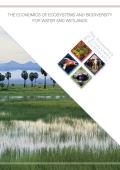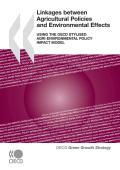The greening of economic growth series ESCAP, its partners and Asia-Pacific countries have advocated "green growth" as a strategy to achieve sustainable development in the resource-constrained, high-poverty context of the Asian and the Pacific region. The conventional "grow now, clean up later" approaches to economic growth are increasingly placing the futures of regional economies and societies at risk. The forward-thinking policymaker is tasked to promote development based on eco-efficient economic growth and at the same time, record more inclusive gains in human welfare and socio-economic progress. In order to assist policymakers in responding to such challenges, ESCAP’s activity on green growth has been developed to focus on five paths: sustainable infrastructure development; investment in natural capital; green tax and budget reform; sustainable consumption and production; and the greening of business and markets. The ESCAP “Greening of economic growth” series provides policymakers with quick access to clear, easy-to-read guidance to specific "green growth" policy tools and actions.

This TEEB for Water and Wetlands report underlines the fundamental importance of wetlands in the water cycle and in addressing water objectives reflected in the Rio+20 agreement, the Millennium Development Goals and forthcoming post 2015 Sustainable Development Goals. The report presents insights on both critical water-related ecosystem services and also on the wider ecosystem services from wetlands, in order to encourage additional policy momentum, business commitment, and investment in the conservation, restoration, and wise use of wetlands.
TEEB Water and Wetlands aims to show how recognizing, demonstrating, and capturing the values of ecosystem services related to water and wetlands can lead to better informed, more efficient, and fairer decision making. Appreciating the values of wetlands to both society and the economy can help inform and facilitate political commitment to policy solutions.
Growing concerns about the environmental unsustainability of past economic growth patterns and increased awareness of a potential future climate crisis have made it clear that the environment and the economy can no longer be considered in isolation. At the same time, the financial and economic crisis has provided the opportunity for policy interventions aimed at encouraging recovery and renewed growth on more environmentally and socially sustainable grounds. A strategic vision is necessary to ensure that, during the crisis exit and beyond, the policies that governments will implement are the most appropriate from an economic efficiency, environmental integrity and social equity point of view, as well as coherent both at a national and an international level.

This is the third review of Mexico's environmental performance. It analyses progress in achieving a range of national objectives and international commitments, and presents 29 recommendations on how performance could be improved. Progress towards a green, low carbon economy is part of the assessment.
